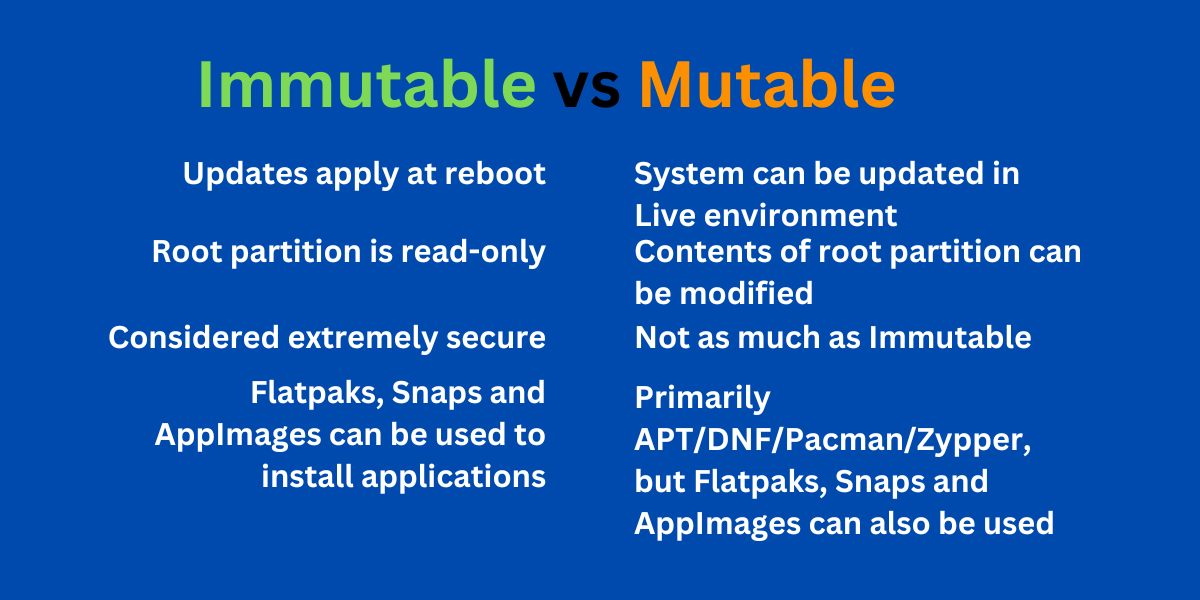Linux
From Wikipedia, the free encyclopedia
Linux is a family of open source Unix-like operating systems based on the Linux kernel, an operating system kernel first released on September 17, 1991 by Linus Torvalds. Linux is typically packaged in a Linux distribution (or distro for short).
Distributions include the Linux kernel and supporting system software and libraries, many of which are provided by the GNU Project. Many Linux distributions use the word "Linux" in their name, but the Free Software Foundation uses the name GNU/Linux to emphasize the importance of GNU software, causing some controversy.
Rules
- Posts must be relevant to operating systems running the Linux kernel. GNU/Linux or otherwise.
- No misinformation
- No NSFW content
- No hate speech, bigotry, etc
Related Communities
Community icon by Alpár-Etele Méder, licensed under CC BY 3.0
Has anyone had good success with setting up a development environment in an immutable distro? I love the entire concept because it fits with a lot of my other software preferences, but the tools for containerized dev environments felt frustrating.
Like, what do you do for your editor? vscode + devcontainers feel like the best option, but it's rough when I need other IDEs (like I use some of the Jetbrains products). Stuff like toolbox works well too, but to get an editor in that, you have to install it in each one, or make a container that has it built in.
Otherwise, I'll stick with plain Fedora — I use flatpaks for all of my apps anyways (except my editor)
I use Jetbrains, devcontainers, and distrobox on Bluefin-DX and it has been flawless out of the box. There's a single command to install the Jetbrains toolbox, which let's you then manage all their apps.
Couldn't recommend it enough, made my development lifecycle so easy.
i started learning rust with nixos, you can declare a shell.nix with everything needed for the environment, and those things will only be available in that folder.
there are caveats and annoyances to this like building a python environment costed me some time, because python packages sometimes require compling and all the shared libraries in nix are not in the right path (because you can have multiple versions installed) so you need to set some env vars to patch this.
nothing that gpt cannot solve.
I need to run immutable distros more, and I need to figure out how to roll my own images.
Desktop side, I need certain things in the base image rather than adding more layers or using a container. Things like rsync, nvim, git, curl, lynx, etc.
Would immutable distros help reach more desktop audiences? Perhaps. It’s more about applications though. The biggest help has been electron apps and the migration to web apps. The Steam Deck is successful because it has applications people want.
Server side, they look really promising for bare metal servers. Provided, there is an easy way to compile custom images. Being able to easily rollback to a known good image is very enticing, as you point out.
